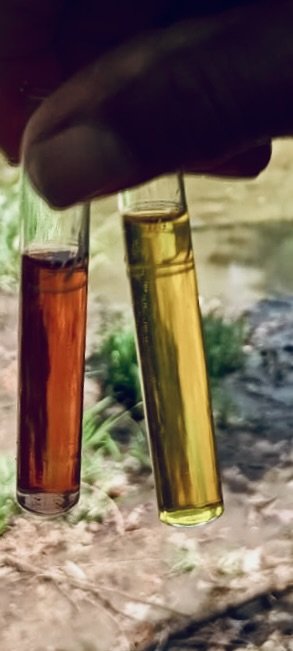Alkalinity involves the buffering capacity of water to neutralize acids, whether fish are conscious of of this neutralization is arguably debatable, just as water whether hardness involves that ability.
What these parameters do involve directly, are the bacteria that cause disease.
Certain bacteria proliferate under certain conditions (pH, hardness, alkalinity)and not others.
So how a species evolves under certain conditions will determine how it reacts to those bacteria.
If a species had evolved the needs to resist a certain bacteria thru millennia, that's what it will be able todo.
If a species is forced to live under adverse conditions (certain parameters) it has not evolved to resist, it may be difficult or even impossible to do.
for example
If a species like Uaru fernandezyepezi that has evolved to live in the Orinoco, where average pH is around 4 to 5, is heavily tannin stained, but with no measurable hardness, and is dropped into hard, high pH water with bacteria that it has not evolved to resist bacteria in, prognosis may not be good.
If Lepidiolamprologus elongatus that has evolved to live the an African rift lake, with a pH of 8+ water, with a high alkalinity, is then forced to live acidic, soft water, prognosis may also not be good.
Where I live in Panama, the large rivers, and lakes where collect cichlids, and regularly test barely move a tenth, even after heavy monsoon rains.
Fish that live in small bodies of water such as ponds are much more adaptable.




